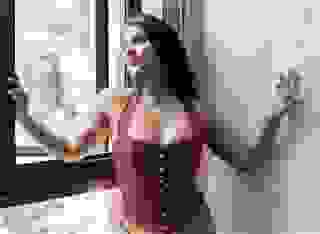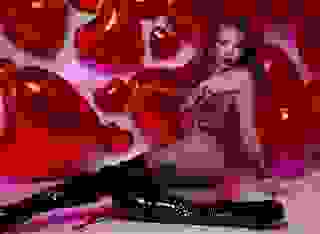Note: You can change font size, font face, and turn on dark mode by clicking the "A" icon tab in the Story Info Box.
You can temporarily switch back to a Classic Literotica® experience during our ongoing public Beta testing. Please consider leaving feedback on issues you experience or suggest improvements.
Click hereWars change people. You can see it in the eyes of the people who've been there, and we could see these events unfolding as we watched Shipman's eyes. Snow, pure and white, smells of gunpowder and blood, lakes of blood dotted with islands of empty brass cartridges, bodies stacked in protective revetments, hour after hour of close combat, one man killing hundreds, perhaps thousands over the course of sleepless days and nights.
Anyway, Shipman returned to Japan with severe frostbite in January, 1951. He converted to Buddhism a few weeks after his discharge from the hospital, and was awarded the Congressional Medal of Honor later that spring.
+++++
One fine winter day early in 1970, a most interesting notice was posted outside the dining hall; it stated that flying lessons would be optionally available to students with high enough grade point averages beginning March 1st. Rand was, of course, a straight A+ student; I had managed to right myself and the magic number was just-within-reach. So, provided my mid-term scores showed modest improvement, I aimed high, so to speak. I was going to follow Rand come Hell or high water, wherever that might lead, and we were going to fly.
Before long, the two of us were traipsing through knee-deep snow to the library whenever we had free time, off to dream our way through flying magazines. Rand started looking at recruiting posters for college ROTC programs about that time, then at admissions guidelines for Annapolis and Colorado Springs. He wanted to fly forever, he said. Hell, so did I. He wrote to his dad, I to my grandparents, to secure the necessary funds for lessons, and when March came round we were among the first dozen to begin flight training. It was just ground school -- the academic nuts and bolts of theory and regulations -- those first few weeks, and was limited to Saturday mornings at that, but it was heaven. Plus, we got out of Saturday morning drill, and that alone was worth the price of admission. We started flying -- for real -- in mid-April, when all traces of winter's snow and ice were dead and gone, and that was more than a little bit like heaven.
I bring this up not to entertain with tales of inverted flight or buzzing startled cattle on crazy Saturday afternoons -- as entertaining as such stories might be. No, I bring up flying and the dreams of teenage boys to paint a picture of where we thought life was taking us. We had the flying bug really bad, and, as we were roommates, we had it full time. Yes, I know, there were really three of us in that room. Rand and myself, of course, but Madeleine was there too, always with us in that corner room. Because her letters came daily, and their presence hung in the air apparent to anyone who waltzed unawares into our toasty little cave. And we couldn't have escaped her presence even had we wanted to. She was so much a part of our lives that winter, so much the instigator of all that lay ahead. Rand wrote to her every day, too, sometimes several letters a day, but theirs was a secret 'wartime' correspondence. I think the letters that passed less frequently -- but no less importantly -- between Madeleine and myself were focused less on our family's wars than on a possible peace and reconciliation. I wonder today if there could have been a middle ground between the three of us, some soft, common ground that my father's shadow didn't dominate, but that just wasn't the case. Father's shadow was everywhere.
Madeleine was fighting for her life, any life out from under his grasping shadow, as it turned out. She lived inside a very dark, very protected landscape, and often the only way out of the darkness came from something I knew nothing about. I heard it referred to as ECT. Electro-Convulsive Therapy, or shock therapy. I had no idea what it was, but I could feel the ebb and flow of it's current in her words. I could see the coming of darkness in her handwriting, the first faint glimmer of a new dawn in the words she chose, then the suffocating rush of her next fall. I came to understand the depths of my father's treachery, the crushing weight of her despair through our letters, but my mother's role remained a mystery.
Some nights, those dark nights after her letters came, I dreamt about the lookouts perched high above the foredeck of the Titanic on that last night, as the ship steamed into darkness. In my dreams, I watched the lives of seven men unfold; the seven who rotated through that posting night after night. I wondered why fate chose just those two men up there in the cold and the darkness that night. The stars overhead must have been lighting the way ahead, and though their breath must've been frosty and tired, in my dream I watch and wonder why they fail to see that single, solitary iceberg looming on the surface of that still, black sea -- until it is all but impossible to avoid such an uncertain fate.
+++++
Madeleine began taking classes at UC Berkeley that winter. Part time, of course, just a few afternoons a week, but the improvement we saw in her letters was startling. Her doctors apparently saw the change as well. Following our return to Indiana after Christmas, she was still a very fragile girl, yet she had a tenacious, though still perilously weak hold on life. The tectonic shifts of the 60s were still very much alive in early 1970, however, as War and Rebellion were still tearing our world apart; now I think of those times as alive with focused fury, yet the actors on that stage often appeared indifferently malicious. I wonder what it all must have felt like to Madeleine. Strange and new, perhaps? Or like echoes, dark and malignant clouds full of unwelcome memory.
Ever since Ronald Reagan's election in 1967 as governor of the state, and his subsequent appointment of Edwin Meese to crack down on college protesters, the epicenter of those tectonic shifts emanated from the campus of The University of California at Berkeley. It's hard to look at the campus today and remember just how different that world really was. Head-shops and record stores lined the streets around campus, girls wrapped in patchouli-scented batik drifted past day-glow images of Hendrix and wilting psychedelic peace signs. Everywhere you looked, storefront windows were full of 'the sixties' -- because that peculiar zeitgeist had been packaged and branded and was being shoved down our collective throats by 1970. "Radicals" driving red Alpha Romeos were everywhere in Berkeley -- and Mrs Robinson was still coo-coo-ca-chooing in the air, too. National Guardsmen came to campus as unrest took root, rocks were thrown, campus buildings occupied, and eventually, guns fired.
Riots, protests, rebellion...all part of the sixties and all part of the same grand convulsion, and it was all centered on the campus of UC Berkeley. Destiny, History, Fate -- choose your weapon, gentlemen, and take aim, because all this was happening around a fragile young woman, still just a girl really, in so many ways. A girl named Madeleine.
She was taking classes there, learning the contours of class warfare, soaking up the righteous indignation offered at coffeehouses round the clock, listening to Dylan and Zeppelin, focusing all the dissipating energy of her father's warped lust into a singular outpouring of rage -- directed at all our fathers.
We, Rand and myself, went back The City for spring break. Madeleine was already at the house on Nob Hill, living there on weekends, trying to come to terms with the world, all while living under my grandmother's watchful gaze. Our father had simply disappeared -- he was nowhere, yet still he was everywhere. Inescapable, omnipresent, gone. Mexico we heard one day, Brazil the next. Who knows, I said. Who the fuck cares, said my sister. Berkeley was changing her. Berkeley was her War.
And now she was different in so many ways from the girl we'd sailed and skied with back in December. She didn't smile -- she boiled over and spilled onto the floor, then drifted back to the tortured shadowlands of her inner landscapes. Rand sat with her almost all the time, held her, tried to help her make sense of her changing moods. He held her hand, looked at that ring on her finger, and that grounded them both to some distant hope. For a while, anyway.
Our week spent, Rand and I flew back to Chicago, just made our bus for the ride back to school, but we rode across our own thawing landscape in silence, caught up in a grievous turmoil. If Madeleine was our common ground, we had just caught a sharp, brief glimpse into the maw of a magmatic fissure.
Madeleine had just brought the war home. Home, to Rand and I.
And war changes people.
+++++
On a Friday afternoon in the first week of May, Tom Shipman came to our room, and he asked Rand to accompany him to the Commandant's Office. Time stopped in our little room, and Rand left without so much as a prayer on his lips. He came back to our room an hour later; he was pale with grief, shaking with rage. He slowly, quietly, put a folded yellow telegram into his desk, shut the drawer with a grinding finality that left me breathless.
The telegram was not from Madeleine, but was instead from his father, who was still in Zurich. The man related, perhaps with the last vestiges of his own humanity, that his ex-wife, Rand's mother, had committed suicide earlier that day.
There were no tears in Dalton Rand's eyes that afternoon, only quiet understanding. He didn't want dinner that night and Shipman intervened, allowed both of us to skip evening formation. He came by after diner to check on us, or so he seemed to say, but he asked us to come with him, go out for a walk.
And we did.
We walked across campus, walked across broad, tree-lined drill fields to a modest bungalow, and once there, we stepped into another world.
We stepped into Tetsuko Shipman's world, and for two kids sentenced to life without chance of parole at a military school in north central Indiana, life would never be the same.
+++++
Robert Frost once wrote of two roads diverging in a yellow wood, and as some come to understand in the fullness of time, there are indeed people who opt for roads less traveled. I can understand that choice now, in the autumn of my life. The chance of solitude. The certainty of everlasting peace not so many years ahead. Not a care in the world -- save the opportunity to look back on the roads we chose to take along the way.
That night, that night in the Shipman cottage, stands out to me now as the first divergent path of my life.
The living room, the only room in the house, really, large enough to hold four people, was awash with incense. Tetsuko was on the floor, sitting on a large pillow, her back to the door. She had a large koto in hand and was playing softly, singing about the wind, and a bird -- caged in a tree.
The bird was trapped, caught by the spirit of the tree, a tree who only wanted to listen to birdsong and who had no idea his true nature was evil. I remember Rand standing there, transfixed, understanding nothing, then understanding everything, caught between life and death, between being and becoming.
Perhaps the wind brought her back to us...the little gust that always slips just past an opening door, and she turned, looked at us, then stood and put her instrument away as we took off our shoes. She bowed to Tom and Rand, then to me, and asked us to come inside, to be seated, then she disappeared to make tea. Shipman, Tom, that is, took a pillow and left the one small sofa in the room to Rand and myself. Tetsuko returned with tea, hot jasmine tea, and poured for us, then set out a few cookies on an exquisite wooden stand.
I thought perhaps Tom Shipman had brought us to talk about Rand and his mother, but he turned to me, looked sympathetically my way.
"How are you doing, Todd? Kind of a lot to take in, isn't it?"
"Yessir," I remember saying, standing deep inside the safety of military ritual. "I guess I'm okay."
"How's your sister doing? Madeleine, isn't it?"
I looked at Rand, who of course was looking at me.
"I don't know, sir. She was acting pretty weird last month. Real angry, but kind of at the world."
"Is she still in that hospital?"
"Yessir," I said, flinching inwardly. "But only part time now. She's taking classes at Berkeley this term."
"Berkeley," Shipman said, surprised. "You mean U C Berkeley?"
"Yessir."
"What's she doing there, for heaven's sake. That's the eye of the hurricane."
"Sir?" Rand and I said in unison.
"Berkeley is the center of the anti-war movement," he said quietly, now clearly concerned. "That campus is overrun with chaos, and it's not the kind of place I'd want my kid -- not if she was trying to move beyond emotional troubles of some sort..."
He took his cup in hand, sipped tea reflectively. "What happened to her, Todd. To Madeleine, I mean. Your mother wouldn't tell me."
I looked away. "No, she wouldn't."
Imitating Shipman, I took some tea, It was bitter, unsatisfying, somehow soothing.
"So? Tell me about Madeleine?"
"I don't know where to..."
"She was raped," Rand said, interrupting me, saving me from hearing my father leave the house one more time, "by her father, starting almost ten years ago. Several times a week. Their mother would pick a fight with him, push him out of the house. He'd take Madeleine when he left, he'd take her with him in his car. To a place called Half Moon Bay. They have a little summer cottage out there. He'd take her there, fuck her all night, then make her cook breakfast for them both before he drove her back into the city, back to school."
I was looking away, my eyes trembling, trying to keep my world together just a little longer.
Rand told them what he knew, which was, as it turned out, a whole helluva lot more than I knew. He told them about her aborted pregnancy, about two suicide attempts I knew nothing about, her collapse in school -- which was how school officials learned all about my father's secret life, and that led to his own desperate flight from the country. I learned how she ended up in Palo Alto, too. She tried to kill herself a third time, but this time at a downtown hotel. She'd checked into a room, was preparing to jump when someone knocked on the door. A maid, turn-down service. This woman figured out what was happening, or what was about to happen, and talked her back from the edge, called my grandfather. Gramps got her to a friend, a psychiatrist he'd designed a house for, and grandfather took over her care from there.
I tried to talk about it, talk about our life at home, but that part of my life has always been a barren landscape, a land of sharp, broken shards of dreams. While I listened I tried to run to that silent place, to that place where I'd held my own deepest terror in check all my life.
An hour passed, then a second, and still we talked.
Then Shipman asked me about my mother. "I haven't talked to her since October," he said. "How is she?"
I shook my head. "I don't know. We haven't heard from her in a while."
Shipman seemed taken aback by this. "What? What do you mean...?"
"I don't know where she is, sir. I assume the grandparents do, but I don't."
"You haven't talked..."
"No, sir, not since Homecoming."
"October, then. Why? Is something...?"
Tetsuko had been silent most of the evening, a patient, hawk-eyed observer. She turned to me then, just in silence, and finally asked me the one question I had been dreading all my life.
"Todd? Rand said your mother would pick a fight with your father. That she ran him off. What happened then? What did your mother do?"
I guess by my reaction everything was fairly obvious to them.
"Todd? What happened?" Rand asked.
I think I was trembling, I think I felt her hand on mine, but I don't really remember much after that. My story came out in gasps, between emotional convulsions, but all was revealed that night -- under the patient guidance of a nurse turned nun, and a Marine who had once killed six hundred people in one night...
...and this is what I remembered: my mother, always drunk before we got home from school; my mother, as she tore into my father as soon as he got home. She ripped him apart nightly, and yes, I remembered how he ran away. I remembered the yelling, the slamming doors, the cries and whispers from Madeleine's room, then I would hear his car roaring down the driveway, speeding away into the night, and then I would lie there in the dark, waiting, because the worst part of the night was about to begin. Again.
I could hear her, down there in the kitchen, pouring another glass of courage.
Then she's coming up the stairs, coming for me, and I pull the covers up over my head, try to hide.
The door to my room opens, sudden light betrays me every time, for there is nowhere to hide now, nowhere to run. There never is.
Then I can smell her, smell the bourbon under her breath, smell her Chanel as she pulls down the sheets of my bed and as she pulls me from my hiding place. I remember the smell of her above all else -- perhaps because my eyes were always closed so tightly; the smell intense as she started to lick my ear, then as she worked her way down I would curl up in a tiny ball, wish the night away as she pried my body apart. And when she was finished with me, when her hot wetness was everywhere, the beatings began.
Tetsuko was holding me, cradling me, really. Wiping our tears away, she held on to me for hours, weeks, years, until some measure of trust returned to me. I saw Rand then; he was standing by the table at the Inn, looking down at my mother, wanting desperately, more than anything else in the world, to take that bitch and kill her.
+++++
Richard Nixon announced to the nation on the night of April 30th, 1970, that American forces had entered Cambodia; for all intents and purposes, America entered her second civil war over the next few days. The conflict was a short, violent one, and a deadly conflict as well, yet for the most part, violence was confined to colleges and universities around the country. Oddly enough, the first skirmishes of this war had happened a year before, in May 1969, and of course, this happened at UC Berkeley. The conflict simmered for a year, simmered while the country tried to come to terms with Bobby Kennedy's murder, then Martin Luther King's murder, Richard Nixon's coronation, race riots in cities all across the country.
There was nowhere to hide from the convulsions: at the grocery store, on the cover of Life Magazine, bloody protesters greeted you at the check-out line; at the local hamburger joint, the owner refused to let kids with long hair enter his establishment; at the Olympics in Mexico City, athletes raised fists in solidarity with African-Americans suffering torrid oppression in American cities, and found themselves expelled from the games. Television programs focused on the evils of drug use, on the evil deeds of hippies and all the other Easy Riders seeking to tear down the American Dream -- and make everyone live on Satan worshiping communes in northern California.
The first bodies to fall in America's Second Civil War did so a little after noon on the 4th day of May, 1970, three days after I came unglued in the Shipman bungalow. This first battle occurred in the sleepy college town of Kent, Ohio, when National Guardsmen confronted students gathered at Kent State University to protest Nixon's just announced Cambodian invasion. Students had gathered to talk about the CIA funding this expansion of the war through drug-trafficking, about the My Lai Massacre, about the use of chemical agents in the jungles of Southeast Asia, and to talk about the steady flow of aircraft returning to America, aircraft full of the dead and dying. Troops that afternoon in Ohio watched passively, but then ordered the protesters to disperse: the students refused and History took note, she started watching very closely now. Someone, somewhere made a wrong move and destiny took over. Shots were fired. Thirteen fell, four died on the scene.







